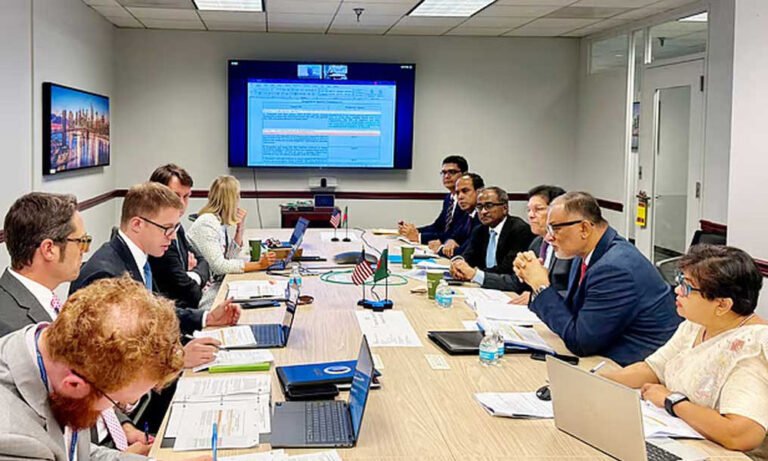In a significant diplomatic breakthrough, Bangladesh has secured a reduced tariff rate of 20 percent, down from the previously announced 35 percent, following high-stakes negotiations with the United States.
The White House confirmed the revised rate today, marking a substantial shift from President Donald Trump’s earlier directive issued on 8 July, which imposed a blanket 35% tariff on all Bangladeshi exports to the US. The earlier decision had sparked concern over its potential impact on Bangladesh’s export-driven economy, particularly its garment sector.
The new tariff structure comes after the third and final round of negotiations, which concluded last night in Washington, DC, between Bangladeshi officials and the Office of the United States Trade Representative (USTR)—the key US agency responsible for shaping trade policy.
A high-level Bangladeshi delegation led by Commerce Adviser Sk Bashir Uddin, National Security Adviser Khalilur Rahman, Commerce Secretary Mahbubur Rahman, and Additional Secretary Nazneen Kawshar Chowdhury engaged in a three-day dialogue aimed at easing the proposed tariff hike and restoring trade parity.
To address the longstanding trade imbalance, Bangladesh submitted a formal proposal to the USTR offering a roadmap to narrow the trade gap. As part of its strategic concessions, Dhaka announced plans to purchase: 25 aircraft from US aviation giant Boeing,Seven lakh tonnes of wheat,Liquefied natural gas (LNG), Cotton, medicines, capital machinery, chemical raw materials, and agricultural goods from the US.
According to USTR data, bilateral trade between the two nations reached $10.6 billion in 2024, with Bangladesh exporting $8.4 billion worth of goods to the US—an increase of 1.1% year-on-year. In contrast, US exports to Bangladesh dipped slightly to $2.2 billion, pushing the US trade deficit with Bangladesh to $6.2 billion.
In April 2025, the US had initially slapped a 37% duty on Bangladeshi products, later revised to an additional 10% after a temporary 90-day postponement. The final agreement to bring the tariff down to 20% signals a diplomatic win for Bangladesh and is expected to stabilise trade flows between the two countries.
The Boeing deal, signed on 27 July, is widely viewed as a strategic countermeasure by Bangladesh—not only to help bridge the trade gap but also to deepen economic and geopolitical ties with Washington.



